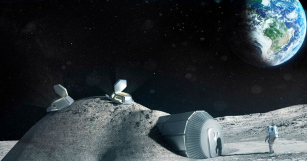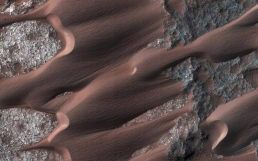A new species of human beings living in outer space? This sounds like some characters from a science-fiction movie, but experts believe this is likely to happen if humans finally manage to live in other parts of the solar system.
Astronomy professor Chris Impey from the University of Arizona believes that human beings will morph into another species once they leave the familiar environment of the Earth where they used to live in.
"These people will become an offshoot of the human tree. They will probably evolve into something else," Impey said in a recent interview.
How exactly will this new stage of human evolution happen? Impey explained that the differences in gravity between the Earth and other planetary bodies that can support life forms in the future, particularly the moon and Mars, can trigger changes in the human body.
"They'll evolve physiologically quite quickly, because if the gravity is less — as it would be on Mars or the moon — then they will change," Impey said.
"Their physical bodies will change even while they're alive. And then if they have children and grandchildren — then they'll change even more," he added.
These changes will also be likely triggered at a faster rate once human beings begin to be less preoccupied about survival.
Anthropologist Cameron Smith likewise thinks that new human species can emerge from a fully functioning human colony in outer space.
Smith believes that changes will happen to the human body very "subtly," much like how people living in higher altitudes have adapted to differences in temperature and pressure.
"What we can say, though, is that new environments—for example, new radiation environments, whatever the gas composition is that people are breathing, whatever is the gravity field inside this starship — those basic environmental conditions will reshape the human genome," Smith explained.















